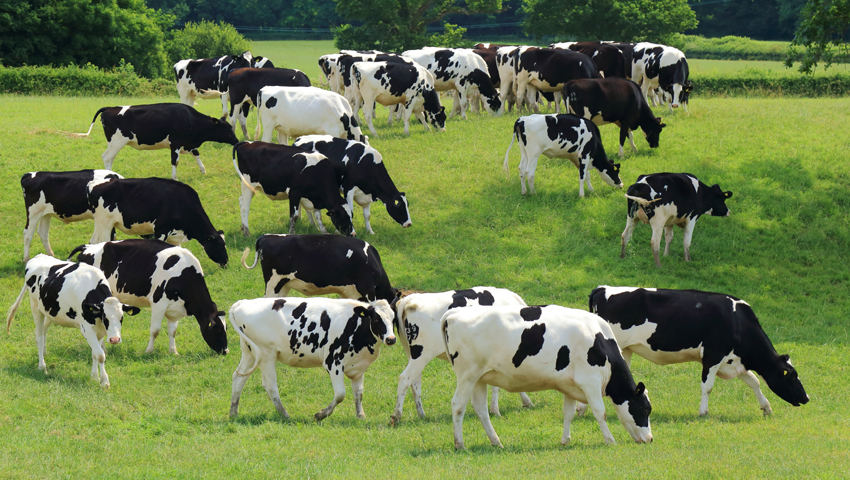As uplifts to farming schemes are announced in England, a new report draws on farmers’ insights to show that whole-sector action is needed to create a fair, resilient and sustainable future for dairy
Last week Secretary of State for Environment, Food and Rural Affairs Steve Barclay announced a 10% uplift to funding as part of the environmental land management schemes – welcome news to many farmers.
With low farm gate milk prices and rising expectations for better environmental and animal welfare standards, many dairy farmers are on the brink. Government support for better British farming is urgent.
However, a new report published this week warns that funding alone will not save the dairy sector – a whole-sector approach is necessary to transition dairy toward a resilient, fair and fit-for-purpose future.
Drawing on 2.5 years of research with dairy farmers, cooperatives and retailers, the report unearths the root causes of issues in the sector – such as power imbalances in the value chain – and outlines vital actions that key groups can take, from landowners to financial services.
Whilst everyone has a role to play, processors and retailers are identified as holding major power in the sector, and therefore holding the key to unlocking significant positive change.
A key action for processors is to create fair and flexible contracts with farmers; whilst actions for retailers include ending the ‘loss leader’ strategy in milk sales, and designing and promoting products from a diversity of dairy systems with higher welfare and environmental standards.
Abi Williams, Dairy Project Lead at the Food Ethics Council, said, “Many dairy farmers are currently ‘locked in’ to systems of production that are damaging to their own wellbeing, their animals and the planet. This mode of farming – producing as much as possible for as little as possible – is obsolete. Funding will help, but funding alone won’t save the sector. We need to unravel the constraints which farmers are operating under, so they have more headspace and more opportunities to transition to more ethical dairy.”
A focus on the role of milk processors and retailers comes at a time when retailers’ practices are to be debated in Parliament on 22 January following Riverford’s #GetFairAboutFarming campaign.
The Food Ethics Council, the charity that coordinated the research and published the report, is holding an online summit on 23 January to explore the future of dairy, including key actions for processors and retailers. Those working in the UK dairy value chain are invited to join.
Read the report, What needs to change in UK dairy?
Register for the FEC’s dairy summit on 23rd January
